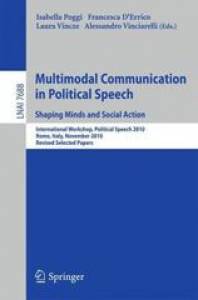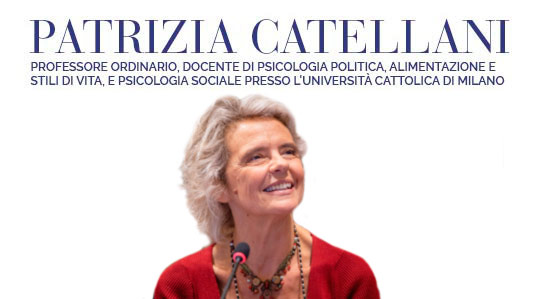 Catellani, P., Bertolotti, M., & Covelli, V. (2013).
Catellani, P., Bertolotti, M., & Covelli, V. (2013).
In I. Poggi, F. D’Errico, L. Vincze, & A. Vinciarelli (Eds.),
Multimodal communication in political speech. Shaping minds and social actions,
Springer Verlag, Berlin,
pp. 75-85.
ISBN 978-3-642-41544-9
During debates and interviews, political leaders often have to defend themselves from adversaries and journalists questioning their performance. To fight against these threats, politicians resort to various defensive strategies, either direct or indirect, to draw attention away from their responsibilities or shed a more positive light upon their work. Counterfactual defences (i.e., comparing past actual events with other hypothetical events) may be included among indirect defensive strategies. We first analyzed counterfactuals evoked by politicians during pre-electoral televised broadcasts. Results showed that politicians defended themselves by using: a) other-focused upward counterfactuals; b) self-focused downward counterfactuals. We then analyzed the effects of defensive counterfactuals on recipients. Participants were presented with different versions of a fictitious political interview, varying for the use of factual versus counterfactual defences and for counterfactual target and direction. Results showed that counterfactual communication is an effective defensive strategy in political debates.
 Italiano (IT)
Italiano (IT)  English (UK)
English (UK) 
